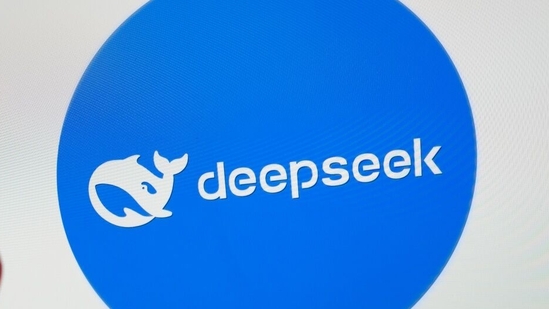DeepSeek: Pioneering open-source AI and global collaboration
This article is authored by Mehdi Hussain, research associate, Indian Council of World Affairs, New Delhi.
The release of DeepSeek – R1 has not only sent shockwaves through the tech world but also marks a new era in global AI governance. DeepSeek, a Chinese startup founded in Hangzhou two years ago, has developed advanced language models that rival those of established Western AI firms such as Microsoft-backed OpenAI, Amazon-supported Anthropic, and Google DeepMind. By prioritising cost-efficiency and leveraging less powerful hardware, DeepSeek has made cutting-edge AI more accessible and scalable.

DeepSeek R1 is an open-source large language model with advanced reasoning capabilities. Committed to transparency, DeepSeek aims to foster cross-border collaboration among researchers, developers, and policymakers. A World Economic Forum article highlights how global researchers can access, scrutinise, and enhance DeepSeek AI models. This openness accelerates AI innovation and fosters trust, as the community can examine the training data and methodologies used. Additionally, open-source AI promotes regulatory discussions and responsible deployment, ensuring AI development remains ethical and unbiased.
DeepSeek has also forged strategic collaborations to enhance its technological capabilities. For instance, a partnership with AMD has enabled it to leverage AMD Instinct GPUs and the ROCm software stack during key development phases, as reported by Forbes. This collaboration has allowed DeepSeek to bridge the gap between western-dominated technology and emerging AI powerhouses like China, fostering a competitive yet cooperative AI landscape. Additionally, partnerships with cloud service providers and hardware manufacturers have optimised AI deployment while reducing reliance on proprietary western infrastructures.
As a Global South nation, China is emerging as a leader in AI development. AI research is a key driver of economic and technological progress, helping countries address challenges in sectors such as agriculture, health care, education, and disaster management. By keeping its technology open-source, DeepSeek is helping bridge the AI divide, enabling developing nations to access and customize advanced AI models. This reduces reliance on costly western alternatives and encourages the creation of locally adapted AI solutions.
Collaboration in AI research and development is crucial in achieving the United Nations' Sustainable Development Goals (SDGs). DeepSeek’s open-source model provides an avenue for global cooperation, enabling nations to develop AI-driven solutions to address climate change, poverty, healthcare accessibility, and quality education. Countries can leverage AI to enhance infrastructure, improve disaster preparedness, and ensure sustainable urban development by working together. Through partnerships with governments, research institutions, and the private sector, DeepSeek fosters AI applications that align with the SDGs, creating a more inclusive and equitable technological landscape.
Generally, western tech giants like OpenAI and Anthropic have shaped the AI landscape, whose closed-source models limit accessibility for developing nations. This exclusivity presents challenges related to capital investment, infrastructure, and AI research capabilities. However, the rise of open-source AI signals a shift in global AI dynamics. A striking example of China’s technological ascent is the evolution of its electric vehicle industry—once dismissed by Tesla CEO Elon Musk in 2011, BYD has since overtaken Tesla in global EV sales, underscoring the potential for rapid technological transformation.
The AI sector remains a highly contested space where major powers—the United States, the European Union and China—are vying for influence. DeepSeek, through its open-source philosophy, is introducing three key principles into AI governance: accessibility, inclusiveness, and collaboration. Unlike western firms that impose restrictive licensing, China advocates a more participatory AI development model, inviting global stakeholders to contribute to and benefit from its innovations.
DeepSeek’s emergence also coincides with the decline of western-led multilateralism and the shift away from the neoliberal order. Historically, post-colonial international development narratives, dominated by western perspectives, categorised nations into First, Second, and Third Worlds based on political, economic, and technological factors. This historical dependency on Western innovation has often disadvantaged developing nations. DeepSeek’s open-source approach challenges this hierarchy, empowering developing countries to take control of their AI-driven futures.
The impact of DeepSeek’s open-source strategy is already evident in China and beyond. By decentralising access to advanced AI, it disrupts traditional intellectual property models and democratises innovation. This has allowed tech giants like Tencent and Alibaba to develop faster, more cost-efficient AI solutions, demonstrating the far-reaching effects of DeepSeek’s approach. Moreover, the open-source model fosters interdisciplinary and international AI research, reducing redundancy and enhancing global collaboration.
Beyond technological advancements, DeepSeek’s commitment to open-source AI has significant implications for ethics and regulation. Unlike opaque closed systems, which have been criticised for perpetuating biases and digital divides, DeepSeek’s transparency enables more rigorous oversight. Policymakers, academics, and AI developers can collaborate to establish ethical standards, ensuring AI serves humanity equitably.
As AI continues to evolve, DeepSeek’s philosophy represents a paradigm shift in the global AI landscape. It challenges western hegemony, empowers developing nations with accessible AI tools, and fosters an inclusive, collaborative future for AI research and deployment. If this trend persists, the future of AI will no longer be dictated by a handful of elite institutions but shaped by a diverse global community of innovators.
This article is authored by Mehdi Hussain, research associate, Indian Council of World Affairs, New Delhi.
All Access.
One Subscription.
Get 360° coverage—from daily headlines
to 100 year archives.



HT App & Website







